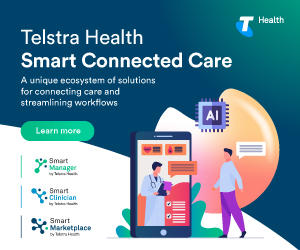Is the doctor pay gap debate really about gender?
A recent comment by a US doctor in the Dallas Medical Journal caused a viral media stir about the gender pay gap in medicine, but the heart of the debate misses one fundamental premise: prioritising wellbeing. Dr Charlotte Middleton, GP and Chief Medical Advisor at MedicalDirector, discusses.
Background to the debate:
In an article published in the Dallas Medical Journal, US doctor Gary Tigges said women deserve to be paid less than men because they don’t work as hard as their male colleagues.
“Yes, there is a pay gap,” Tigges wrote. “Female physicians do not work as hard and do not see as many patients as male physicians. This is because they choose to, or they simply don’t want to be rushed, or they don’t want to work the long hours.”
“Most of the time, it is because their priority is something else, family, social, whatever,” he continued. “Nothing needs to be done about this unless female physicians actually want to work harder and put in the hours. If not, they should be paid less. That is fair.”
Tigges’ comments formed part of a wider feature about the ‘problem’ of women in medicine, which discussed a recent report that found that female practitioners in the US earn 28% less than their male counterparts. And almost immediately, social media erupted with hundreds of doctors and health commentators taking to the social platform to criticise Tigges for his comment, even though he had tried to explain his comments had been misconstrued.
Let’s focus on patient outcomes
Let’s take gender out of the equation for a minute, and focus on why the comment ‘not seeing as many patients’ is fundamentally flawed.
The practice of medicine, and the ‘worth’ of a healthcare professional shouldn’t be measured by how many patients you can cram into a day, it should be measured by the quality of care you offer to your patients, to enable better health outcomes.
The future of medicine starts with a holistic approach to keep patients well, rather than simply try to treat them when they’re sick – and that’s going to require more than a six-minute doctor’s appointment. So who cares what the number of patients is that you see per day? It’s the quality of care you’re providing to your patients.
It’s time we stop the finger pointing as to ‘who saw less patients’, and take a look at actual health outcomes. Who is actually showing less patients going to emergencies, or less patients going to specialists? Let’s look at those stats, not just the stats of how many patients walk in and out your door.
Working harder or smarter?
Now let’s look at the comment about ‘not working as hard’ or ‘not wanting to work long hours.’ Male or female, doctors are suffering from burnout and depression – and it’s becoming a world-wide epidemic.
In Australia, a special report by Insight in 2017 investigated that among doctors, suicide rates are disproportionately high and mental illness is common.
In the UK, A report in the British Medical Journal in 2011 found that a third of doctors have a mental health disorder. And a Royal College of Physicians’ survey of junior doctors last year found that 70% worked on a rota that was permanently under-staffed, 80% felt their work put them under excessive stress, and a quarter felt it had a serious impact on their mental health.
Meanwhile a report earlier this year found more than a thousand British GPs have sought professional help from the NHS GP Health Service since it was set up in 2017, with most cases involving stress, anxiety and depression and about 2% addiction.
In the US, a study by MedScape this year of 15,000 physicians from 29 specialties found 42 per cent were burnt out and 12 per cent reported colloquial depression.
More recently, a University of Wollongong study found junior doctor burnout not only affects the individual, it can lead to increased absenteeism and depression, medical errors and engaging in risky alcohol use.
We need to stop having a female v male discussion. Healthcare professionals of all genders may choose to work less, or more, and it’s their choice – and it is often about work/life balance, and preventing burnout. We all universally recognise the pressures and the stress placed on us, so doctors are now actively looking to have a more balanced approach to work.
This is also where the habit of ‘working smarter, not harder’ becomes more relevant. Innovative health technology offers us with exciting opportunities to be more efficient, automate mundane tasks, reduce administrative burdens and alleviate workflow frustrations. At the same time, cloud-based health software is enabling us to work in far more flexible and patient-centric ways. All this innovation helps us to be more empowered with our time as practitioners, to work smarter (not harder), while delivering quality, personalised patient care.
Dr Charlotte Middleton is presenting her topic, ‘Meeting Patient Expectations: Now and In the Future’ at the GPCE Event in Melbourne 16-17th of November 2018.









